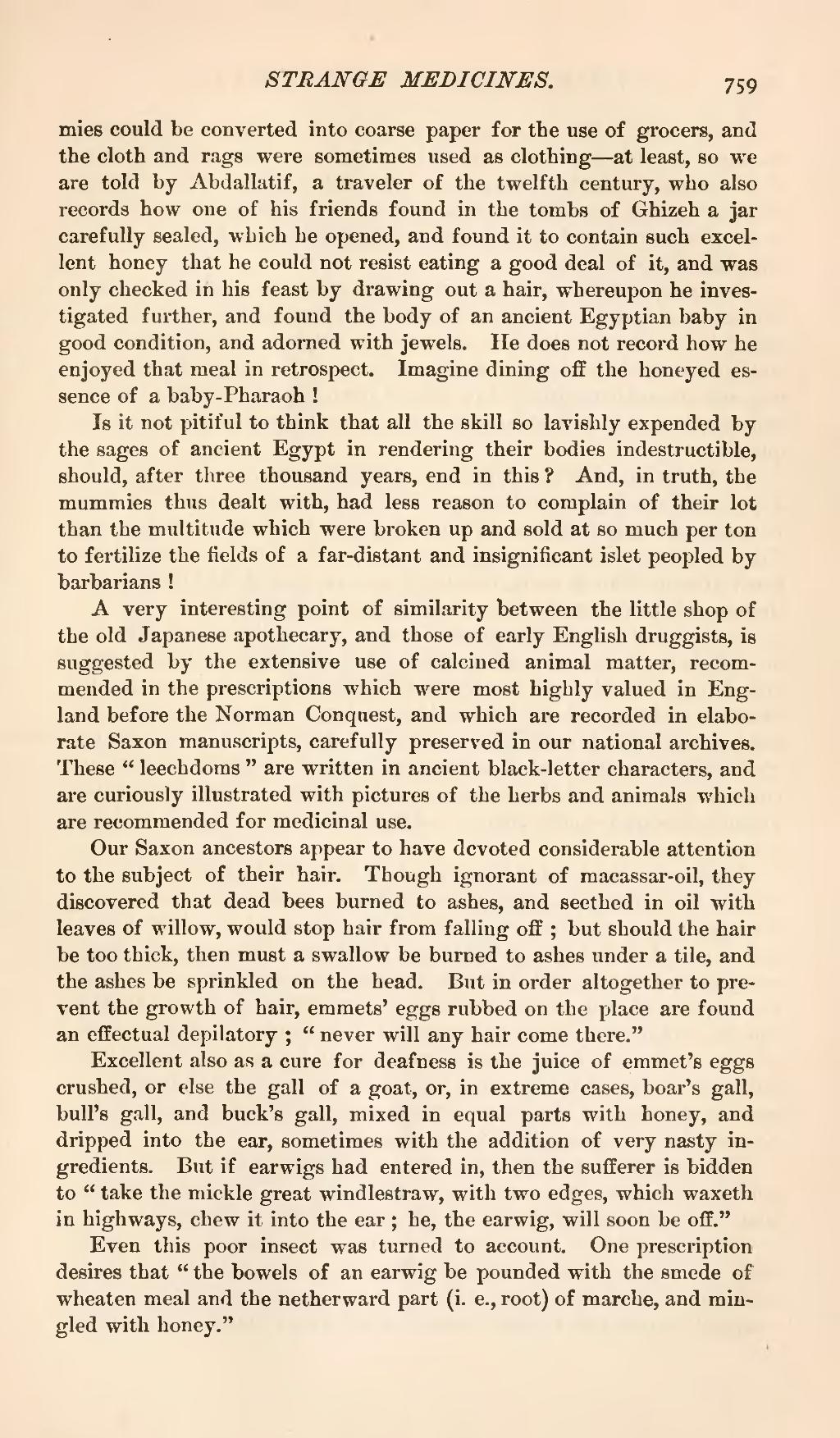mies could be converted into coarse paper for the use of grocers, and the cloth and rags were sometimes used as clothing—at least, so we are told by Abdallatif, a traveler of the twelfth century, who also records how one of his friends found in the tombs of Ghizeh a jar carefully sealed, which he opened, and found it to contain such excellent honey that he could not resist eating a good deal of it, and was only checked in his feast by drawing out a hair, whereupon he investigated further, and found the body of an ancient Egyptian baby in good condition, and adorned with jewels. He does not record how he enjoyed that meal in retrospect. Imagine dining off the honeyed essence of a baby-Pharaoh!
Is it not pitiful to think that all the skill so lavishly expended by the sages of ancient Egypt in rendering their bodies indestructible, should, after three thousand years, end in this? And, in truth, the mummies thus dealt with, had less reason to complain of their lot than the multitude which were broken up and sold at so much per ton to fertilize the fields of a far-distant and insignificant islet peopled by barbarians!
A very interesting point of similarity between the little shop of the old Japanese apothecary, and those of early English druggists, is suggested by the extensive use of calcined animal matter, recommended in the prescriptions which were most highly valued in England before the Norman Conquest, and which are recorded in elaborate Saxon manuscripts, carefully preserved in our national archives. These "leechdoms" are written in ancient black-letter characters, and are curiously illustrated with pictures of the herbs and animals which are recommended for medicinal use.
Our Saxon ancestors appear to have devoted considerable attention to the subject of their hair. Though ignorant of macassar-oil, they discovered that dead bees burned to ashes, and seethed in oil with leaves of willow, would stop hair from falling off; but should the hair be too thick, then must a swallow be burned to ashes under a tile, and the ashes be sprinkled on the head. But in order altogether to prevent the growth of hair, emmets' eggs rubbed on the place are found an effectual depilatory; "never will any hair come there."
Excellent also as a cure for deafness is the juice of emmet's eggs crushed, or else the gall of a goat, or, in extreme cases, boar's gall, bull's gall, and buck's gall, mixed in equal parts with honey, and dripped into the ear, sometimes with the addition of very nasty ingredients. But if earwigs had entered in, then the sufferer is bidden to "take the mickle great windlestraw, with two edges, which waxeth in highways, chew it into the ear; he, the earwig, will soon be off."
Even this poor insect was turned to account. One prescription desires that "the bowels of an earwig be pounded with the smede of wheaten meal and the netherward part (i. e., root) of marche, and mingled with honey."
